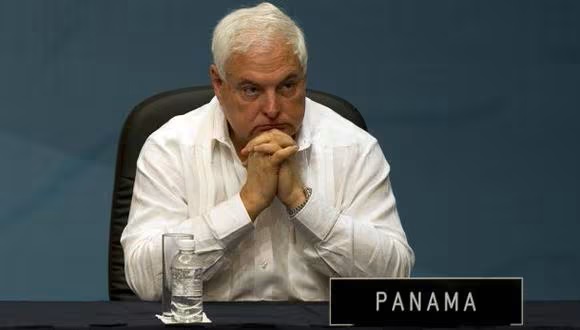Panama’s Assembly Studying a Bill That Would Give Amnesty to Martinelli

Panama’s Assembly is studying a controversial bill that would give amnesty to Ricardo Martinelli. The bill was rejected Friday by Transparency International (TI) considering that it is done to give “impunity.” It is common knowledge that the objective of this bill is to prevent a series of former officials investigated and prosecuted for crimes against the Public Administration from serving their sentences, with a focus of course on former president Ricardo Martinelli. In this recent case, it is one of the few convictions for money laundering achieved by the Justice Administration System in a scheme of great corruption, with a million-dollar impact on the treasury, says the statement from the anti-corruption organization, which also warns that this possible law would affect Panama’s efforts to leave the lists of tax havens in which it has been included for years.
According to TI, “the aforementioned project introduces reforms to the Penal Code that would allow the important figures of pardon or amnesty to be applied to common crimes, beyond the political crimes contemplated in the Constitution, and introducing a series of definitions that go against the national and international doctrine on the matter”. Deputy Luis Eduardo Camacho, spokesman and friend of former President Martinelli, presented last Monday before the plenary session of the Legislature the draft law “which dictates provisions on amnesty, pardon, reduction of sentence, and granting of conditional freedom, which modifies the Penal Code and the Criminal Procedure Code”, according to official information from Parliament. Experts and members of civil society have warned that the main beneficiary of this proposal would be the former Panamanian president, who has been asylum since last March in the Nicaraguan embassy in Panama after the Panamanian Justice condemned him, in the middle of his presidential candidacy, to more than 10 years in prison for money laundering.
“I am a friend of Ricardo Martinelli and I will never deny it. But I do not come alone to defend him; I come to defend the rule of law. I want to remember precisely Martinelli’s case, which is why this bill speaks also of the need to respect the binding procedures of international organizations regarding a case,” said Camacho, a representative of the Realizing Goals (RM) party, founded by Martinelli. Now, the Government Commission, which Camacho himself chairs, must decide whether to “prohibit” this draft or not. If it passes this first phase, it must then be discussed in three debates by the deputies of the chamber. The presentation in the chamber of this draft law has generated controversy in Panama, where deputies have expressed their rejection and consider that they have overtones of “unconstitutionality” and even the president of the country, José Raúl Mulino, who was running as a candidate for vice presidency in Martinelli’s formula until he was disqualified, has spoken out on the matter, pointing out that “it does not have his acceptance.”
“This law has neither my approval nor my consensus, nor have I participated (in it) nor have I spoken about anything on the subject with any congressman,” President Mulino said during his weekly press conference. “I don’t know that amnesty law. The draft came into my hands for the first time so I will study it. It does not have my consensus or my acceptance or anything like that,” the president insisted. And he blurted out: “I will study it accordingly as a lawyer, and I will act in accordance with the law and with all the resources that the law allows me as president, to evaluate it over time as the assembly of deputies’ advances. Since his entry into power on July 1, Mulino names Martinelli less and less frequently, highlighting that “there is no progress” in his situation.





